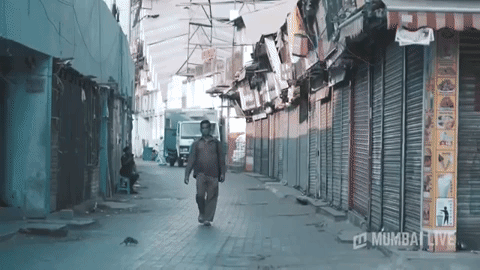How Families of Child Victims of Sexual Abuse in Mumbai are Coping with the Lockdown: Results of a Rapid Assessment
Why some of the most vulnerable families & children need your support to survive the crisis.

The true scale of the effects of the Covid-19 pandemic on our world are yet to come clear. But every one of us will be markedly affected as we make our way through this crisis and come out to face the aftermath.
But if anything can be stated with clarity it is that those who are most vulnerable today are the one’s stand to lose the most. At the end of the curve, they will be more vulnerable than ever before. And if they are to make it across with life and dignity intact, they will need to come across the biggest hearts and the strongest support. And if we can help them make it across, rest assured, we all will.
As part of our project “Strengthening Child Protection Systems in Mumbai & Maharashtra”, in which we work partnership with UNICEF Maharashta since 2015, we were working closely with over 250 families affected by child sexual abuse. We have been supporting them through their journeys towards justice & healing.
Most families were only just coming to terms with the disruption caused by sexual violence when yet another, maybe even greater disruption arrived in the form of the pandemic and the lockdown. Many of them belong to economically and socially marginalized communities. Many of the children belong to the most vulnerable categories like adolescent girls, queer children, disabled children, homeless children.
Even as we are all coping with quarantine, we cannot begin to comprehend the harrowing isolation of a family affected by sexual violence. Even something like social distancing ends up magnifying the stigma of abuse that the face faces within the communities they live in. They are essentially boycotted with no support and not even the most basic favors to draw upon. They are marooned in a locked down city with no income, no savings, and questionable access to welfare.
It is telling of a massive humanitarian crisis when families are put in a position where they have to consider healing from sexual violence as a secondary priority.
Their first priority is merely to survive.
Highlights of the Rapid Assessment: How Families of Child Victims of Sexual Abuse in Mumbai are Coping with the Lockdown

(Click here for the full Rapid Assessment Report With Charts.)
As the lockdown progressed and based on our continuous communication with the families on ground, there was a felt need for increasing the scope of our interventions to include provision of essential goods to the most vulnerable families. A quick rapid assessment was formulated and conducted telephonically to ascertain the immediate situation w.r.t health, food & accessibility to key Government schemes which were announced.
We reached out to 127 families of which 124 offered us detailed information on their situation.
- On an average, every family has 6 members.
- None of them have reported being affected (or even tested) for COVID-19. 94% report feeling healthy. 3 families have members suffering from tuberculosis. 5 families have members with longtime afflictions like paralysis and diabetes.
- 32% families do not have ration cards or their ration card has expired.
- 47% families mentioned that their ration shop had become inaccessible due to the lockdown. 13% of those who have access to ration shops, mentioned that they still did not get access to rations as there was no stock available.
- 60% are single income families. There are 2 families where no member was employed even before the lockdown.
- 93% of the employed members work in unorganized sectors primarily as domestic workers, masons, plumbers, other contractual workers, construction workers, drivers, prostitutes, shoe makers etc.
- 80% of the employed members had not received their payment or wages for the month of March and are unsure as when they would receive payments.
- Around half the families mentioned that they would run out of ration in a week’s time. Another 25% were unsure about sustaining rations once the month was over.
- 84% of the families were not part of the Ujwala Yojna under which free cooking gas has been promised. 11% were unable to determine if they qualified.
- Only 2% families qualify for the Government’s Jan Dhan Yojna scheme under which they are entitled to Rs. 500/- monthly for three months.
- 76% families reported that Shiv Bhojan Centres, the State’s program offering subsidized food, was inaccessible.
(Support families of child victims of sexual offences and enable them to sustain themselves and survive the pandemic & lockdown. Please click here to donate.)









Oh. Really pathetic condition in which these families survived.!!!!